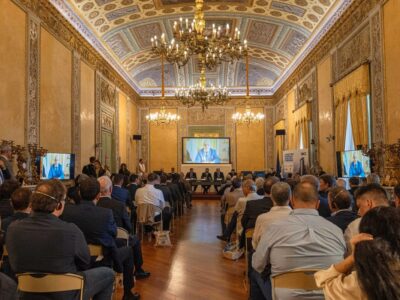Shirish Saraf is given to energetic segues about financial markets and the state of the world. Moving constantly in his seat, he gesticulates vigorously and launches into off-the cuff-speeches about overpopulation, the positive impact of falling oil prices on the Indian economy and the factors behind his young company Samena Capital’s speedy growth story — scarcely finishing one sentence before starting the next.
“Life is full of challenges, right? There are huge political concerns today, across the Middle East, in China — the latter has the second oldest population in the world so how do you navigate that? How do you teach your grandfather to start going to McDonald’s? India and Saudi [Arabia] have demographic challenges too — it might be a boon to have the two youngest populations in the world but there are resulting migration issues, infrastructure issues, supply chain constraints…You need the political will to execute policies on a grand scale to ensure the demographic dividend does not become a curse.
“What we [in investment] have to do, and what we [at Samena] have done, is to create structures that enable you to ride out economic cycles so you don’t have to leverage in those scenarios. We tend not to leverage. We think there are two abstract terms in the world and one of those is ‘financial engineering’. [The second, he says, is ‘war on terror’.] You have to do things that set you apart.”
It is telling that Saraf talks about Samena Capital in the same breath as these macro issues — he is an ambitious company leader who is going to great lengths to ensure his business is up there with the crème de la crème of the banking world. In announcing an intent to purchase a 31.2 percent equity stake in Kleinwort Benson, with an option to increase to 39 percent in the three years after the deal completes later this year, Samena was not seeking to tap into the long established, London-based private banking firm’s pedigree, he pronounces, “they wanted to access ours”.
He cannot recall who approached who but is clear on the motivation for both parties. “It’s like when you marry someone and people ask how things started and you don’t really know. All I know is that we’ve always had the ambition to get into the merchant banking, corporate finance space — this was our vision from day one.
“Our private equity business thrives on the network of relationships we have developed and the shareholders we have accumulated across Hong Kong, Asia, India and the Middle East. We operate in markets that tend to be opaque, relationship driven, insight driven, where access is often difficult and where credibility and getting established is difficult to achieve. This gives us a unique position.
“What do merchant banks lend themselves to? They lend themselves to relationships, pedigree and a club-type story that goes back decades — think of [former British prime minister] Margaret Thatcher’s 1980s City of London, with SG Warburg, Fleming, Baring and, of course, Kleinwort Benson. These big-name merchant banks were in their heyday but they’d been around for more than a century, and Kleinwort Benson was a forerunner as it goes back 200 years.
“It’s an established bank but they realised that today you can’t grow in size and scale without being significantly involved in the growth markets of Asia, India and the Middle East. So it was a logical thing to synergise our networks.”
Under the deal — which will be completed in the third quarter of this year pending approval from the Bank of England and Financial Conduct Authority — Samena intends to set up a global merchant banking business in Dubai under the Kleinwort Benson brand. Saraf says it will have a team of between seven and ten people and be the advisory arm for the Asia/Middle East business. Kleinwort Benson will continue to offer its London-based private banking and corporate advisory services. At the end of 2014, the bank had $5.2bn of assets under management.
Saraf’s Samena Capital is seven years old, is capitalised with $75m of equity and manages capital commitments in excess of $745m, focusing on the subcontinent, Asia, the Middle East and North Africa. Describing the company’s investment strategy as “sector agnostic”, Saraf points to several high-profile investments made since it launched its first fund in 2009, including the acquisition last July of 30 percent of RAK Ceramics from Sheikh Mohammed Bin Saud Al Qasimi, Crown Prince of Ras Al Khaimah, for $238m.
Other portfolio investments made through its two private equity funds, Samena Special Situations Fund and Samena Special Situations Fund II, include stakes in India’s Ballarpur Industries, Eicher Motors, Mahindra Two Wheelers and chemicals manufacturing company Jubilant Life Sciences. It has also acquired stakes in Singapore’s Rubicon Offshore International and systems giant CSE Global.
The seven-year Samena Special Situations Fund closed in May 2009 with total commitments of $180.5m, and Fund II closed in June 2013 with total commitments of more than $331m. Saraf says the first fund has returned 85 percent of its capital in five years and the second fund is around 60 percent invested. Samena intends to make two more investments within the next 12 months, he says, adding that the company must spend $150m to $200m of its fund money during that time “in addition to our billions of dollars of investment capability”. He refuses to divulge further details of either of the two deals and says there are no plans to launch another fund until the second half of 2016 when capital is fully returned in Fund II.
He claims Samena’s model is different from that of traditional asset managers, where investment decisions are centered on a small number of portfolio managers. “Ours is a collective investment philosophy. We have a unique shareholding structure with some of the most influential entrepreneurs in business and some of the most significant families from Hong Kong, Asia, India and the Middle East. They are very involved and we meet three or four times a year.”
Samena has around 40 shareholders including Sheikh Mohammed Bin Essa Al Khalifa, former chief executive of Bahrain’s Economic Development Board, and Atul Punj, chairman and founder of Punj Lloyd, India’s second-largest construction company. Board members include Sheikh Nawaf Nasser Bin Khalid Al Thani, chairman and chief executive of NBK Holding, Daisy Ho, deputy managing director of Shun Tak Holdings, and Samir Fancy, chairman and founder of Oman’s Renaissance Services SAOG.
Saraf says: “We are not a one-country shop, because the game in MENA is all about cross-border consolidation, buying up companies, acquisitions. This is what we’ve been doing. Look at RAK Ceramics — today it operates in India, Bangladesh, China, it’s listed on the Dhaka Exchange, it’s in Africa, Iran, it has a global footprint.”
“Last February, we acquired [a 7 percent stake in] Mahindra scooters [for $29m]. Then Mahindra went in and acquired France-based Peugeot Citroen’s scooter division [for €28m ($31.2m) last October], so that in turn gave us brand, technology, regional power — it gets us into French-speaking Africa.
“This is what it’s about: to make businesses today you cannot be centered on one country. You have to have global touchpoints, regional strength and a presence in those markets that are very big and relationship based.”
RAK Ceramics’ year-on-year net profit after non-controlling interest deducation dropped by 0.2 percent to AED57.9m ($15.8m) in the last quarter, reportedly as a result of inflation in Sudan and Iran. But Saraf shrugs. “You know, in the private equity game our work is not on a quarterly basis, that’s more for the news people. Since we came in we’ve sold four or five non-core businesses and the stock is up 15 percent since we bought it. We’re making a 35 pence dividend on a 350 price with a 10 percent yield, have doubled capacity in Bangladesh and India and increased profit margins by 300 basis points. The company is going from strength to strength and this is despite the global recession and fluctuating gas prices.”
He also sees significant potential for expansion of RAK Ceramics in “previously lacklustre” markets such as Iraq. “If the Iran sanctions go, Iraq is a huge beneficiary because it has manufacturing capability there, gas is cheaper, raw materials are among the best in the world and you can export all your equipment there.” He admits, though, that he has to be careful when making portfolio decisions based around Iran and Iraq: “Keep in mind we have US institutions among our shareholders.”
Another advantage of seeking out cross-regional investments is that it minimises risk. “We have always taken the view that by combining India, with the Gulf, with Asia, you are effectively giving a layman’s hedge to investing. When oil prices go up, the Gulf markets go up and we invest in the Gulf. When oil prices go down, these markets tank because it’s all linked to government spending. So we invest in countries like India and China, which actually do very well then because oil and commodities account for around 40 percent of their import bill and high oil prices tend to strangle their engines of growth.”
Another way Samena manages risk is by buying “stable, mature” businesses. “We don’t tend to do venture capital, distress or turnaround. We make our investments through a variety of ways — sometimes through proprietary access; others through secondary buyouts, and we’ve grown quicker than we thought we would.”
This is partly because, as Saraf notes, regional investment firms such as Shuaa Capital, EFG-Hermes and Global Investment House, which were well known a decade ago, are less active today, presenting Samena with a “compelling opportunity”. What is more, few investment banks underwrite issues in the way that traditional merchant banks, including Kleinwort Benson, did — another opportunity for Samena. “Underwriting all but disappeared from investment banking in the 1990s and 2000s — that came basically as ‘bulge brackets’ [the world’s largest and most profitable multinational investment banks] increasingly joined the fee and commission game rather than taking risks.”
As such, Saraf believes there are too few competitors in the market and there is a “real opportunity for investment banks right across MENA and the subcontinent”. In terms of future expansion, he says he has enough on his plate but “a natural extension over time could be towards Africa”. South America is not on Samena’s radar at present, but he says flippantly that he has wanted to go to Carnival of Brazil for a long time. “When you hear of me going on holiday somewhere for the first time, just add 10-15 years and we’ll be there.”
Sitting in Saraf’s plush DIFC office — which feels more like a formal sitting room than an office, with a 180-degree view of Dubai, a huge wood and glass coffee table and expensive-looking art and sculpture lining the walls — it is clear that he rules the roost and enjoys imparting his knowledge. On more than one occasion I get the distinct sensation of being in a lecture hall receiving a didactic lesson in investment theory. “The only thing you have certainty about today is that whatever made you successful in the past will not in the future,” he says stridently. “Therefore, you must constantly innovate to give your investors a better value proposition.”
He breaks off to take a call — presumably from the hotel in which he stays during his monthly visits to the Dubai office (Saraf is based in London during the summer but spends most of the winter in Dubai with his wife and two-and-a-half-year-old daughter). “I’m checking out at 7pm!” he bellows down the line. “I’m not extending my stay…just give me until 7…No…You can charge me! Yup, yup…Just talk to [my PA].” He hangs up with a decisive, “And so.”
Before I leave, he gives clear instructions as to which photographs of him Arabian Business should publish, revealing that his wife always sees them “and she has her favourites”. The bombastic Saraf is certainly anything but meek.








